Cancer Exercise Training for Health & Fitness Professionals
THE MOST CURRENT EVIDENCE-BASED ONCOLOGY EXERCISE TRAINING WORLDWIDE
Expand Your Skills as a CES and elevate your career with the most comprehensive cancer exercise training program in the world.
There were 20 million new cancer cases worldwide in 2023 and 30 million cancer SURVIVORS!
1 in 5 people will be diagnosed with cancer at some point in their lifetime.
 “Cancer can strip you of everything- hair, body parts, strength, endurance, hope, finances, relationships, job, self-esteem, and self-confidence.” – Andrea Leonard
“Cancer can strip you of everything- hair, body parts, strength, endurance, hope, finances, relationships, job, self-esteem, and self-confidence.” – Andrea Leonard
As a health and fitness professional, you can EMPOWER patients and survivors at all stages of the cancer journey. You can help them reclaim control of their minds and their bodies through individualized oncology exercise programming. Here’s how:
Cancer Prevention
Physical activity is linked to reduced rates of certain cancers. Exercise has many biological effects on the body including:
-
Lowering the levels of sex hormones, such as estrogen, and growth factors that have been associated with cancer development and progression
-
Preventing high blood levels of insulin, which has been linked to cancer development and progression
-
Reducing inflammation
-
Improving immune system function
-
Altering the metabolism of bile acids, decreasing exposure of the gastrointestinal tract to these suspected carcinogens
-
Reducing the time it takes for food to travel through the digestive system, minimizing the time that potential carcinogens are in contact with the mucosal lining of the stomach
-
Helping to prevent obesity, which is a risk factor for many cancers as well as cancer co-morbidities
Before Treatment Begins
Physical activity can help improve overall health status and prepare patients mentally and physically for the difficult journey ahead of them.
During Treatment
Physical activity helps to minimize cancer-related adverse effects and has a beneficial effect on the whole body. Benefits include, but are not limited to:
- Minimizes treatment-related side effects, such as mental and physical fatigue, peripheral neuropathy, lymphedema, osteoporosis, diabetes, damage to the heart and lungs, and nausea
- Minimizes depression and anxiety
- Improves mobility and the ability to perform activities of daily living (ADL’s)
- Improves balance and reduces fall-related injuries
- Prevent cancer cachexia (muscle loss) and increase overall strength
- Decreases weight gain and obesity, which may increase the risk of future cancers and co-morbidities such as lymphedema, diabetes, and heart disease
- Improved sleep which is critical for healing
- Improved treatment efficacy
- Improve survival rates for certain cancers, (breast and colorectal cancer)
- Improve quality of life, self-confidence, and self-esteem
Immediate Recovery
Physical activity following cancer surgery and treatment can help patients return to their previous fitness level or, in many cases, even better!
- Improved shoulder range of motion (ROM) following mastectomy for breast cancer and head and neck cancer surgery
- Corrects muscle imbalances due to surgery and radiation that can lead to pain, joint degeneration, and injury
- Quicker return to normal activities and work
- Increased stamina and ability to perform activities of daily living (ADL’s)
- Improve quality of life, self-confidence, and self-esteem
Long-term Survival
Multiple studies show that regular physical activity is linked to increased life expectancy after a diagnosis of cancer, in many cases by decreasing the risk of cancer recurrence.
The American Cancer Society, the World Cancer Research Fund, the American Institute for Cancer Research, the American College of Sports Medicine, and the US Department of Health and Human Services all advocate physical activity for cancer patients and survivors.
- One prospective study of patients with breast cancer found that women who exercised for two and a half hours per week after they had been diagnosed had a 67 percent lower risk of death compared with patients who did not exercise.
- A study of patients treated for stage III colorectal cancer found that among those who remained cancer-free six months after surgery and chemotherapy, physical activity reduced the risk of colorectal cancer subsequently returning or causing death.
So What is The Challenge?
Cancer patients and survivors are less active than the general population. It may be due to pain, fear of pain, or lack of resources.
One thing is for certain – there are not enough trained health and fitness professionals who have the training and expertise to work safely and effectively with cancer patients and survivors.
If you’ve ever considered working with the cancer and aging population, perhaps you’ve wondered:
- What credentials do I need to work with special needs clients?
- What are the liabilities?
- What are the recommendations and guidelines for working with cancer survivors and those with chronic conditions?
- How can I customize those guidelines to work for each client?
- What are the risks I need to be aware of?
- How do I conduct an effective assessment before we begin?
- What do I need to know about each type of cancer or condition?
- How will current treatments affect my recommendations?
- What is appropriate at different stages of the cancer and chronic disease journey?
- How can I help my clients build healthy habits & exercise behaviors that stick?
Don’t take unnecessary risks with cancer patients/survivors and clients with chronic conditions. Let us provide you with the most current and evidence-based education to create safe and effective action plans.
You will get the tools, confidence, and support of the global leader in cancer and aging exercise education.
 OncoVie™ Cancer Exercise Specialist Advanced Qualification
OncoVie™ Cancer Exercise Specialist Advanced Qualification
The OncoVie™ Cancer Exercise Specialist was developed for health and fitness professionals seeking to attain a higher level of mastery and work with cancer patients during and after cancer surgery and treatment and into survivorship. Participants will expand their skills as a CES and gain a complete understanding of the entire cancer process from diagnosis and treatment to reconstruction and survivorship. Our unique and individualized programming will help to improve the patient’s ability to cope with the mental and physical stress following cancer diagnosis and treatment.
The OncoVie™ Cancer Exercise Specialist is considered the gold standard in oncology-exercise training worldwide.

What can you expect to learn from the OncoVie™ Cancer Exercise Specialist Advanced Qualification program?
- You will gain an understanding of breast cancer surgery, treatment, and reconstructive procedures
- You will gain an understanding of lymphedema; learn how to implement appropriate lymph drainage protocols and learn the appropriate progression of exercises for each client
- You will gain an understanding of cancer treatment, acute and chronic side-effects, and learn the appropriate progression of exercises for each client
- You will gain an understanding of the role of nutrition and alcohol intake on cancer prevention
- You will gain an understanding of the psychological implications of a cancer diagnosis, the stages of grief, and what it’s like to be a caregiver
- You will learn how to conduct a comprehensive physical assessment that includes a postural assessment, goniometric measurements, Trendelenberg Test, Modified Thomas Test, and more
- You will learn how to create safe and effective exercise programming, for in-person or virtual training, for individuals or groups. This includes Personal Training, Yoga, Pilates, Aquatics, Group Exercise, and more.
How Does the CETI OncoVie™ Cancer Exercise Specialist Advanced Qualification Training Work?

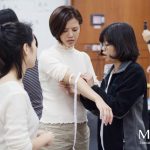
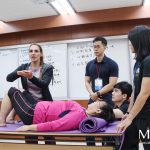
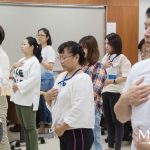

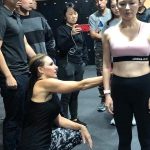
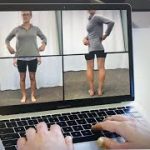

The OncoVie™ Cancer Exercise Specialist Advanced Qualification is an online training platform designed for all health and fitness professionals – yoga, Pilates, personal trainers, physical and occupational therapists, oncology nurses, patient navigators, and doctors who work with, or want to work with, cancer patients and survivors.
What can you expect to learn from the Cancer Exercise Specialist® Advanced Qualification program?
- You will gain an understanding or breast cancer surgery, treatment, and reconstructive procedures
- You will gain an understanding of lymphedema; learn how to implement appropriate lymph drainage protocols and learn the appropriate progression of exercises for each client
- You will gain an understanding of cancer treatment, acute and chronic side-effects, and learn the appropriate progression of exercises for each client
- You will gain an understanding of the role of nutrition and alcohol intake on cancer prevention
- You will gain an understanding of the psychological implications of a cancer diagnosis, the stages of grief, and what it’s like to be a caregiver
- You will learn how to conduct a comprehensive physical assessment that includes a postural assessment, goniometric measurements, Trendelenberg Test, Modified Thomas Test, and more
- You will learn how to create safe and effective exercise programming, for in-person or virtual training, for individuals or groups. This includes Personal Training, Yoga, Pilates, Aquatics, Group Exercise, and more.
-
32 video training modules
-
Over 500 pages of the most current and evidence-based content on oncology exercise
-
Printable forms and business-building resources
-
Private Facebook community for ongoing education and peer support

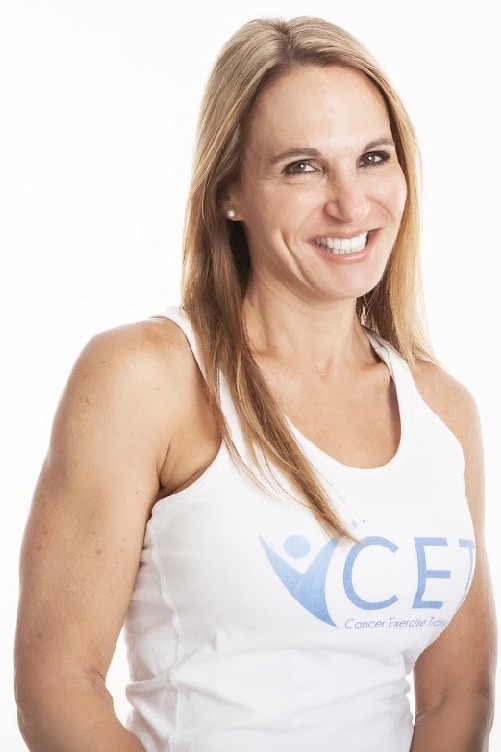 “Cancer can strip you of everything- hair, body parts, strength, endurance, hope, finances, relationships, job, self-esteem, and self-confidence.” – Andrea Leonard
“Cancer can strip you of everything- hair, body parts, strength, endurance, hope, finances, relationships, job, self-esteem, and self-confidence.” – Andrea Leonard
 OncoVie™ Cancer Exercise Specialist Advanced Qualification
OncoVie™ Cancer Exercise Specialist Advanced Qualification Upon course completion, you will have an in-depth understanding of the entire cancer process from diagnoses through treatment and recovery. You will have the confidence to design and prescribe individualized, safe, and effective exercise programs for cancer patients and survivors as an OncoVie™ Cancer Exercise Specialist.
Upon course completion, you will have an in-depth understanding of the entire cancer process from diagnoses through treatment and recovery. You will have the confidence to design and prescribe individualized, safe, and effective exercise programs for cancer patients and survivors as an OncoVie™ Cancer Exercise Specialist.